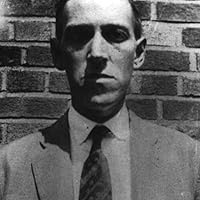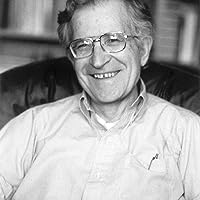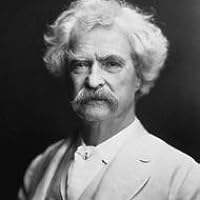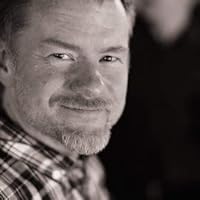Brainwashing Quotes
Quotes tagged as "brainwashing"
Showing 1-30 of 183

“For God so loved the world, that he gave his only begotten Son, that whosoever believeth in him will believeth in anything. - Hitchens 3:16”
―
―

“We all know that any emotional bias -- irrespective of truth or falsity -- can be implanted by suggestion in the emotions of the young, hence the inherited traditions of an orthodox community are absolutely without evidential value.... If religion were true, its followers would not try to bludgeon their young into an artificial conformity; but would merely insist on their unbending quest for truth, irrespective of artificial backgrounds or practical consequences. With such an honest and inflexible openness to evidence, they could not fail to receive any real truth which might be manifesting itself around them. The fact that religionists do not follow this honourable course, but cheat at their game by invoking juvenile quasi-hypnosis, is enough to destroy their pretensions in my eyes even if their absurdity were not manifest in every other direction.”
― Against Religion: The Atheist Writings of H.P. Lovecraft
― Against Religion: The Atheist Writings of H.P. Lovecraft

“My dad had limitations. That's what my good-hearted mom always told us. He had limitations, but he meant no harm. It was kind of her to say, but he did do harm.”
― Gone Girl
― Gone Girl

“Because the horror of Communism, Stalinism, is not that bad people do bad things — they always do. It's that good people do horrible things thinking they are doing something great."
[Six Questions for Slavoj Žižek, Harper's Magazine, November 11, 2011]”
―
[Six Questions for Slavoj Žižek, Harper's Magazine, November 11, 2011]”
―
“The brainwashed humans were the code that kept the Masters’ program running smoothly and the freethinking humans were the viruses in the program who needed to be removed, quarantined, and deleted to protect the operating system, the Masters’ great spider-web design.”
― The Beasts of Success
― The Beasts of Success

“Modern industrial civilization has developed within a certain system of convenient myths. The driving force of modern industrial civilization has been individual material gain, which is accepted as legitimate, even praiseworthy, on the grounds that private vices yield public benefits in the classic formulation.
Now, it's long been understood very well that a society that is based on this principle will destroy itself in time. It can only persist with whatever suffering and injustice it entails as long as it's possible to pretend that the destructive forces that humans create are limited: that the world is an infinite resource, and that the world is an infinite garbage-can. At this stage of history, either one of two things is possible: either the general population will take control of its own destiny and will concern itself with community-interests, guided by values of solidarity and sympathy and concern for others; or, alternatively, there will be no destiny for anyone to control.
As long as some specialized class is in a position of authority, it is going to set policy in the special interests that it serves. But the conditions of survival, let alone justice, require rational social planning in the interests of the community as a whole and, by now, that means the global community. The question is whether privileged elites should dominate mass-communication, and should use this power as they tell us they must, namely, to impose necessary illusions, manipulate and deceive the stupid majority, and remove them from the public arena. The question, in brief, is whether democracy and freedom are values to be preserved or threats to be avoided. In this possibly terminal phase of human existence, democracy and freedom are more than values to be treasured, they may well be essential to survival.”
―
Now, it's long been understood very well that a society that is based on this principle will destroy itself in time. It can only persist with whatever suffering and injustice it entails as long as it's possible to pretend that the destructive forces that humans create are limited: that the world is an infinite resource, and that the world is an infinite garbage-can. At this stage of history, either one of two things is possible: either the general population will take control of its own destiny and will concern itself with community-interests, guided by values of solidarity and sympathy and concern for others; or, alternatively, there will be no destiny for anyone to control.
As long as some specialized class is in a position of authority, it is going to set policy in the special interests that it serves. But the conditions of survival, let alone justice, require rational social planning in the interests of the community as a whole and, by now, that means the global community. The question is whether privileged elites should dominate mass-communication, and should use this power as they tell us they must, namely, to impose necessary illusions, manipulate and deceive the stupid majority, and remove them from the public arena. The question, in brief, is whether democracy and freedom are values to be preserved or threats to be avoided. In this possibly terminal phase of human existence, democracy and freedom are more than values to be treasured, they may well be essential to survival.”
―

“Is there any point in public debate in a society where hardly anyone has been taught how to think, while millions have been taught what to think?”
―
―

“In the end the Party would announce that two and two made five, and you would have to believe it. It was inevitable that they should make that claim sooner or later: the logic of their position demanded it. Not merely the validity of experience, but the very existence of external reality, was tacitly denied by their philosophy. The heresy of heresies was common sense. And what was terrifying was not that they would kill you for thinking otherwise, but that they might be right. For, after all, how do we know that two and two make four? Or that the force of gravity works? Or that the past is unchangeable? If both the past and the external world exist only in the mind, and if the mind itself is controllable—what then?”
― 1984
― 1984

“Most people do not have a problem with you thinking for yourself, as long as your conclusions are the same as or at least compatible with their beliefs.”
―
―
“The concept of “mental health” in our society is defined largely by the extent to which an individual behaves in accord with the needs of the system and does so without showing signs of stress.”
― Industrial Society and Its Future
― Industrial Society and Its Future

“Even the humblest Party member is expected to be competent, industrious, and even intelligent within narrow limits, but it is also necessary that he should be a credulous and ignorant fanatic whose prevailing moods are fear, hatred, adulation, and orgiastic triumph. In other words it is necessary that he should have the mentality appropriate to a state of war. It does not matter whether the war is actually happening, and, since no decisive victory is possible, it does not matter whether the war is going well or badly. All that is needed is that a state of war should exist.”
― 1984
― 1984

“If you can convince people that freedom is injustice, they will then believe that slavery is freedom.”
―
―

“When even the brightest mind in our world has been trained up from childhood in a superstition of any kind, it will never be possible for that mind, in its maturity, to examine sincerely, dispassionately, and conscientiously any evidence or any circumstance which shall seem to cast a doubt upon the validity of that superstition. I doubt if I could do it myself.”
― The Autobiography of Mark Twain
― The Autobiography of Mark Twain
“A conscious human is driven by their conscience, not popular opinion.”
― Rise Up and Salute the Sun: The Writings of Suzy Kassem
― Rise Up and Salute the Sun: The Writings of Suzy Kassem

“The crowd, most on the verge of premature middle age, were mainly drinking in intimate pairs, whispering in one another’s ears, laughing, touching. Public intimacy was the new sexy and still carried a whiff of taboo.”
― The Potrero Complex
― The Potrero Complex
“Some people with DID present their narratives of sadistic abuse in a quite matter-of-fact way, without perceptible affect. This may sometimes be done as a way of protecting themselves, and the listener, from the emotional impact of their experience. We have found that people describing trauma in a flat way, without feeling, are usually those who have been more chronically abused, while those with affect still have a sense of self that can observe the tragedy of betrayal and have feelings about it. In some cases, this deadpan presentation can also be the result of cult training and brainwashing. Unfortunately, when a patient describes a traumatic experience without showing any apparent emotion, it can make the listener doubt whether the patient is telling the truth.
(page 119, Chapter 9, Some clinical implications of believing or not believing the patient)”
― Forensic Aspects of Dissociative Identity Disorder
(page 119, Chapter 9, Some clinical implications of believing or not believing the patient)”
― Forensic Aspects of Dissociative Identity Disorder

“Property taxes' rank right up there with 'income taxes' in terms of immorality and destructiveness. Where 'income taxes' are simply slavery using different words, 'property taxes' are just a Mafia turf racket using different words. For the former, if you earn a living on the gang's turf, they extort you. For the latter, if you own property in their territory, they extort you. The fact that most people still imagine both to be legitimate and acceptable shows just how powerful authoritarian indoctrination is. Meanwhile, even a brief objective examination of the concepts should make anyone see the lunacy of it. 'Wait, so every time I produce anything or trade with anyone, I have to give a cut to the local crime lord??' 'Wait, so I have to keep paying every year, for the privilege of keeping the property I already finished paying for??' And not only do most people not make such obvious observations, but if they hear someone else pointing out such things, the well-trained Stockholm Syndrome slaves usually make arguments condoning their own victimization. Thus is the power of the mind control that comes from repeated exposure to BS political mythology and propaganda.”
―
―
“A cult is a group of people who share an obsessive devotion to a person or idea. The cults described in this book use violent tactics to recruit, indoctrinate, and keep members. Ritual abuse is defined as the emotionally, physically, and sexually abusive acts performed by violent cults. Most violent cults do not openly express their beliefs and practices, and they tend to live separately in noncommunal environments to avoid detection.
Some victims of ritual abuse are children abused outside the home by nonfamily members, in public settings such as day care. Other victims are children and teenagers who are forced by their parents to witness and participate in violent rituals. Adult ritual abuse victims often include these grown children who were forced from childhood to be a member of the group. Other adult and teenage victims are people who unknowingly joined social groups or organizations that slowly manipulated and blackmailed them into becoming permanent members of the group. All cases of ritual abuse, no matter what the age of the victim, involve intense physical and emotional trauma.
Violent cults may sacrifice humans and animals as part of religious rituals.
They use torture to silence victims and other unwilling participants. Ritual abuse victims say they are degraded and humiliated and are often forced to torture, kill, and sexually violate other helpless victims. The purpose of the ritual abuse is usually indoctrination. The cults intend to destroy these victims' free will by undermining their sense of safety in the world and by forcing them to hurt others.
In the last ten years, a number of people have been convicted on sexual abuse charges in cases where the abused children had reported elements of ritual child abuse. These children described being raped by groups of adults who wore costumes or masks and said they were forced to witness religious-type rituals in which animals and humans were tortured or killed. In one case, the defense introduced in court photographs of the children being abused by the defendants[.1] In another case, the police found tunnels etched with crosses and pentacles along with stone altars and candles in a cemetery where abuse had been reported. The defendants in this case pleaded guilty to charges of incest, cruelty, and indecent assault.[2] Ritual abuse allegations have been made in England, the United States, and Canada.[3]
Many myths abound concerning the parents and children who report ritual abuse. Some people suggest that the tales of ritual abuse are "mass hysteria." They say the parents of these children who report ritual abuse are often overly zealous Christians on a "witch-hunt" to persecute satanists.
These skeptics say the parents are fearful of satanism, and they use their knowledge of the Black Mass (a historically well-known, sexualized ritual in which animals and humans are sacrificed) to brainwash their children into saying they were abused by satanists.[4] In 1992 I conducted a study to separate fact from fiction in regard to the disclosures of children who report ritual abuse.[5] The study was conducted through Believe the Children, a national organization that provides support and educational sources for ritual abuse survivors and their families.”
― Ritual Abuse: What It Is, Why It Happens, and How to Help
Some victims of ritual abuse are children abused outside the home by nonfamily members, in public settings such as day care. Other victims are children and teenagers who are forced by their parents to witness and participate in violent rituals. Adult ritual abuse victims often include these grown children who were forced from childhood to be a member of the group. Other adult and teenage victims are people who unknowingly joined social groups or organizations that slowly manipulated and blackmailed them into becoming permanent members of the group. All cases of ritual abuse, no matter what the age of the victim, involve intense physical and emotional trauma.
Violent cults may sacrifice humans and animals as part of religious rituals.
They use torture to silence victims and other unwilling participants. Ritual abuse victims say they are degraded and humiliated and are often forced to torture, kill, and sexually violate other helpless victims. The purpose of the ritual abuse is usually indoctrination. The cults intend to destroy these victims' free will by undermining their sense of safety in the world and by forcing them to hurt others.
In the last ten years, a number of people have been convicted on sexual abuse charges in cases where the abused children had reported elements of ritual child abuse. These children described being raped by groups of adults who wore costumes or masks and said they were forced to witness religious-type rituals in which animals and humans were tortured or killed. In one case, the defense introduced in court photographs of the children being abused by the defendants[.1] In another case, the police found tunnels etched with crosses and pentacles along with stone altars and candles in a cemetery where abuse had been reported. The defendants in this case pleaded guilty to charges of incest, cruelty, and indecent assault.[2] Ritual abuse allegations have been made in England, the United States, and Canada.[3]
Many myths abound concerning the parents and children who report ritual abuse. Some people suggest that the tales of ritual abuse are "mass hysteria." They say the parents of these children who report ritual abuse are often overly zealous Christians on a "witch-hunt" to persecute satanists.
These skeptics say the parents are fearful of satanism, and they use their knowledge of the Black Mass (a historically well-known, sexualized ritual in which animals and humans are sacrificed) to brainwash their children into saying they were abused by satanists.[4] In 1992 I conducted a study to separate fact from fiction in regard to the disclosures of children who report ritual abuse.[5] The study was conducted through Believe the Children, a national organization that provides support and educational sources for ritual abuse survivors and their families.”
― Ritual Abuse: What It Is, Why It Happens, and How to Help

“Someone with a fresh mind, one not conditioned by upbringing and environment, would doubtless look at science and the powerful reductionism that it inspires as overwhelmingly the better mode of understanding the world, and would doubtless scorn religion as sentimental wishful thinking. Would not that same uncluttered mind also see the attempts to reconcile science and religion by disparaging the reduction of the complex to the simple as attempts guided by muddle-headed sentiment and intellectually dishonest emotion?
...Religion closes off the central questions of existence by attempting to dissuade us from further enquiry by asserting that we cannot ever hope to comprehend. We are, religion asserts, simply too puny. Through fear of being shown to be vacuous, religion denies the awesome power of human comprehension. It seeks to thwart, by encouraging awe in things unseen, the disclosure of the emptiness of faith. Religion, in contrast to science, deploys the repugnant view that the world is too big for our understanding. Science, in contrast to religion, opens up the great questions of being to rational discussion, to discussion with the prospect of resolution and elucidation. Science, above all, respects the power of the human intellect. Science is the apotheosis of the intellect and the consummation of the Renaissance. Science respects more deeply the potential of humanity than religion ever can.”
― Nature's Imagination: The Frontiers of Scientific Vision
...Religion closes off the central questions of existence by attempting to dissuade us from further enquiry by asserting that we cannot ever hope to comprehend. We are, religion asserts, simply too puny. Through fear of being shown to be vacuous, religion denies the awesome power of human comprehension. It seeks to thwart, by encouraging awe in things unseen, the disclosure of the emptiness of faith. Religion, in contrast to science, deploys the repugnant view that the world is too big for our understanding. Science, in contrast to religion, opens up the great questions of being to rational discussion, to discussion with the prospect of resolution and elucidation. Science, above all, respects the power of the human intellect. Science is the apotheosis of the intellect and the consummation of the Renaissance. Science respects more deeply the potential of humanity than religion ever can.”
― Nature's Imagination: The Frontiers of Scientific Vision

“The important thing for you to remember is that it does not matter in the least how you got the idea or where it came from. You may never have met a professional hypnotist. You may never have been formally hypnotized. But if you have accepted an idea - from yourself, your teachers, your parents, friends, advertisements, from any other source - and further, if you are firmly convinced that idea is true, it has the same power over you as the hypnotist's words have over the hypnotized subject.”
― Psycho-Cybernetics: Updated and Expanded
― Psycho-Cybernetics: Updated and Expanded
“Scientology always has been a game of power and control. L. Ron Hubbard was the ultimate con man, and it's hard to figure out how much of Scientology was an experiment in brainwashing and controlling people, and how much of it was truly intended to help people.”
― Beyond Belief: My Secret Life Inside Scientology and My Harrowing Escape
― Beyond Belief: My Secret Life Inside Scientology and My Harrowing Escape

“It's intellectual freedom when a journalist can understand that 2 + 2 = 4; that's what Orwell was writing about in 1984. Everybody here applauds that book, but nobody is willing to think about what it means. What Winston Smith [the main character] was saying is, if we can still understand that 2 + 2 = 4, they haven't taken everything away. Okay? Well, in the United States, people can't even understand that 2 + 2 = 4.”
― Understanding Power: The Indispensable Chomsky
― Understanding Power: The Indispensable Chomsky

“تنظر سيكولوجية الإعلام الجماهيرية إلى التليفزيون على الأخص بإعتبارخ وسيلة - ليس لإخضاع الجانب الواعي في الإنسان فحسب- بل الجوانب الغريزية والعاطفية، بحيث تخلق فيه الشعور بأن الآراء المفروضة عليه هي آراؤه الخاصة.”
― الإسلام بين الشرق والغرب
― الإسلام بين الشرق والغرب

“The Zionist leadership came up with two kinds of response to this predicament: one for public consumption, the other for the limited corps of intimates Ben-Gurion had collected around himself.”
― The Ethnic Cleansing of Palestine
― The Ethnic Cleansing of Palestine

“… a weak mind is a malleable one. Once it is convinced it has been lied to, it begins to lie to itself. Once persuaded that it is hated, it becomes hateful. Once made to fear violence, it becomes violent.”
― Son of a Liche
― Son of a Liche

“The goal is to face your fears. That is how you overcome fear. Then it can’t have a stronghold over you, your beliefs, and your mind.”
― Intuitive Guide: How to Trust Your Gut, Embrace Divine Signs, & Connect with Heavenly Messengers
― Intuitive Guide: How to Trust Your Gut, Embrace Divine Signs, & Connect with Heavenly Messengers

“Living in a society where corporate entities possess extensive knowledge about us entails immense peril, as this knowledge can allow third parties manipulate our minds and mold our lives according to economic and elitist agendas that do not have the best of our interests in mind.”
― THE MODERN WORLD AGAINST THE HUMAN SOUL: Exploring modernity's impact on the human spirit and well-being
― THE MODERN WORLD AGAINST THE HUMAN SOUL: Exploring modernity's impact on the human spirit and well-being

“He sat for some time, meditatively frowning, then picked up his pen and wrote across the title-page: "The author's mathematical treatment of the conception of purpose is novel and highly ingenious, but heretical and, so far as the present social order is concerned, dangerous and potentially subversive. Not to be published." He underlined the words. "The author will be kept under supervision. His transference to the Marine Biological Station of St. Helena may become necessary." A pity, he thought, as he signed his name. It was a masterly piece of work. But once you began admitting explanations in terms of purpose–well, you didn't know what the result might be. It was the sort of idea that might easily decondition the more unsettled minds among the higher castes–make them lose their faith in happiness as the Sovereign Good and take to believing, instead, that the goal was somewhere beyond, somewhere outside the present human sphere, that the purpose of life was not the maintenance of well-being, but some intensification and refining of consciousness, some enlargement of knowledge. Which was, the Controller reflected, quite possibly true. But not, in the present circumstance, admissible. He picked up his pen again, and under the words "Not to be published" drew a second line, thicker and blacker than the first; then sighed, "What fun it would be," he thought, "if one didn't have to think about happiness!”
―
―
All Quotes
|
My Quotes
|
Add A Quote
Browse By Tag
- Love Quotes 98k
- Life Quotes 76.5k
- Inspirational Quotes 73k
- Humor Quotes 44k
- Philosophy Quotes 30k
- Inspirational Quotes Quotes 27k
- God Quotes 26.5k
- Truth Quotes 24k
- Wisdom Quotes 23.5k
- Romance Quotes 23.5k
- Poetry Quotes 22.5k
- Death Quotes 20k
- Life Lessons Quotes 19.5k
- Happiness Quotes 18.5k
- Hope Quotes 18k
- Faith Quotes 18k
- Quotes Quotes 17.5k
- Inspiration Quotes 17k
- Spirituality Quotes 15k
- Religion Quotes 15k
- Motivational Quotes 15k
- Writing Quotes 15k
- Relationships Quotes 14.5k
- Life Quotes Quotes 14.5k
- Love Quotes Quotes 14k
- Success Quotes 13.5k
- Time Quotes 12.5k
- Motivation Quotes 12.5k
- Science Quotes 11.5k
- Motivational Quotes Quotes 11.5k


